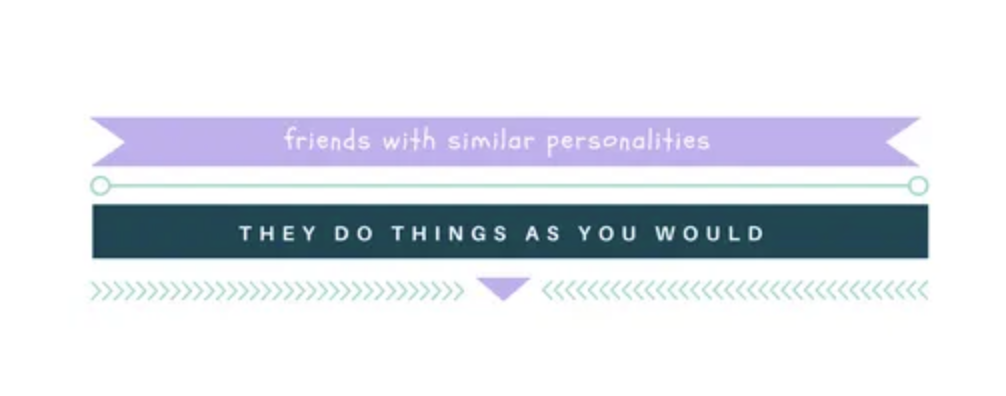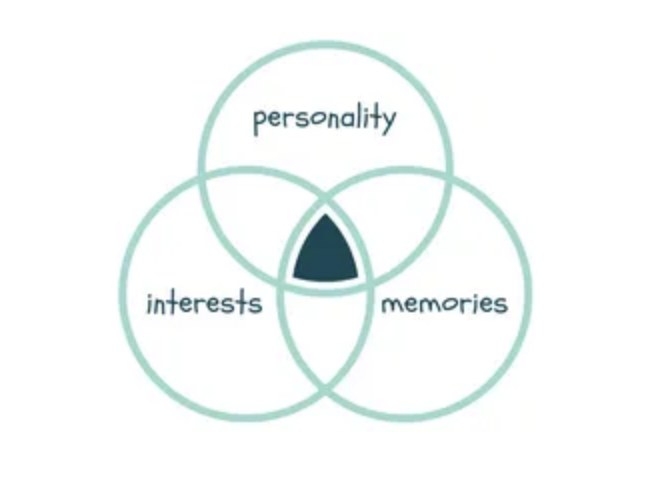Friends for life? Keeping friendships throughout your 30s
About a year ago, I was about to turn 30 and quite confident that the most challenging years of adulthood were over. Today, about to turn 31, it is pretty clear that I was being optimistic. This new decade brings its own set of challenges. The greatest one so far: how to maintain friendships in the midst of all the life changes everyone my age is going through.
According to an article from The New York Times in 2012, sociologists since the 1950s have considered three conditions as crucial to making close friends:
Proximity;
Repeated, unplanned interactions;
A setting that encourages people to let their guard down and confide in each other.
Think about it: when was the last time these three conditions coincided in your life? If you’ve passed the mid-twenty stage, it’s probably been a while. In college, maybe. In high school, most likely. The truth is, as you enter your late twenties and early thirties these conditions are increasingly hard to meet.
This means it will be harder for you to make new friends. You’ll meet new people, obviously. And some might turn into good friends. It’s just that, as I’ve written before, the twenties introduce you to a brand new notion of time, one where you don’t have afternoons to spare anymore. Intimacy takes longer to build than before.
So what about those who already were your friends before you reached this stage? As Tim Urban puts it, chances are you matched up with most of them: A) by circumstance (they just happened to be there), and B) before you really knew yourself yet.
Some will inevitably go separate ways; others will remain in your life and your relationships will evolve into different formats and levels of intensity. Probably those that will stay consistently throughout the years share at least one of these factors with you: Personality, Interests and Memories. As maintaining these different types of friends will present you with specific challenges, here are a few suggestions for each case:
Friends with similar personalities
These are the friends who generally do things as you would. If you’re a rational type of person, they probably are too. If you like to plan ahead, they probably do too. It’s not that you always have similar opinions (they might identify with a political ideology you don’t agree with) or even pursue the same interests (they might love going to the beach while you don’t particularly enjoy it), but when it comes to those topics that matter to the maintenance of a relationship (taking initiative to schedule dinner plans, planning on buying a birthday gift for a friend), you tend to behave similarly. And this makes both your lives easier.
The issue with similar personalities is that at some point you start to assume that you know what the other person is thinking or feeling. After all, that’s what you would think or feel. I have a friend who is exactly the same personality type as me (we are both ISTJs). So, when one of us texts the other “how are you doing?”, the other’s reply is usually “I’m fine”. I used to think, she’s probably sorting things out on her own, as I would. But recently I learned how hard it is to be left out when someone you care about is in trouble. So now, instead of asking her how she is, I invite her over for breakfast or lunch in the park. That way, we both get time to open up and talk about what’s really going on. The trick here is to remember that this person isn’t you. Don’t just assume things. Ask.
Friends with shared interests
These are the friends who like what you like. That’s probably what brought you close in the first place. You found that this person shared your passion for books, or your ideal of a friday night spent dancing, and that created a setting for you to meet more often. You might not have a similar personality type, but the fact that you both want to pursue a common interest keeps you together. And this makes both your lives enriching.
The challenge in this case is that you might tend to expect that, just because you are both really into something, that will be enough to keep the common passion (and the relationship) alive. And that’s an honest assumption, in fact, companies are now promoting accountability partnerships to help people achieve personal and professional goals based on the idea that they will push each other further. But as life gets in the way, you’ll need to be intentional about nurturing your interests. I have a friend who I share an interest in writing with. Only problem is, he lives in a different country. So recently we created a slack team where we share advice and notes on our individual progress. My tip here would be to create means to further the interest together. Keep tuned to news about your topic of interest and share them with your friend. Schedule meetings just to talk about it or invite the other person to go to events related to it. Invest.
Friends with common memories
These are the friends who lived what you lived. They are, as a friend told me the other day, the friends who used to see you in your pajamas. They are repositories of your past and also proof that you are likeable despite your faults. They know the real you, and yet they stayed. You might not have similar personalities or even interests in common. But the fact that you’ve seen each other at your best and worst and stayed reinforces your bond. And this makes both your lives part of a common history.
The tendency with “pajama friends” is to expect things to remain just the way they always were. But as people grow up and go through different experiences, you’ll have to keep on creating new memories together, otherwise nothing will unite you but the past. One of my oldest friends lives in my birth city so sometimes it’s hard to hang out. Plus, I am not a big fan of catching up by phone. So every time I go visit my folks I make arrangements to meet him. The main idea is, make sure you find the time to be together. As other people come into your lives (boyfriend/girlfriend, children…) it might be more difficult to do it, but if you want them to remain in your life remember the three conditions that foster close friendships. Make time.
. . .
If you have a friend who shares all three factors with you, you’ve hit the jackpot! Your memories keep you close, your shared interests make you want to pursue new experiences together, and your similar personalities will spare you from most of the drama of making arrangements to meet. That relationship has probably been keeping itself running autonomously.
Don’t get too comfortable though. Time will eventually bring changes and new challenges, and this is a relationship you don’t want to lose as it will be increasingly harder to make new friends who you have so much in common with.
. . .
Do you have friends in other categories and have no idea how to maintain them? Write me about it. I would love to hear your thoughts.





